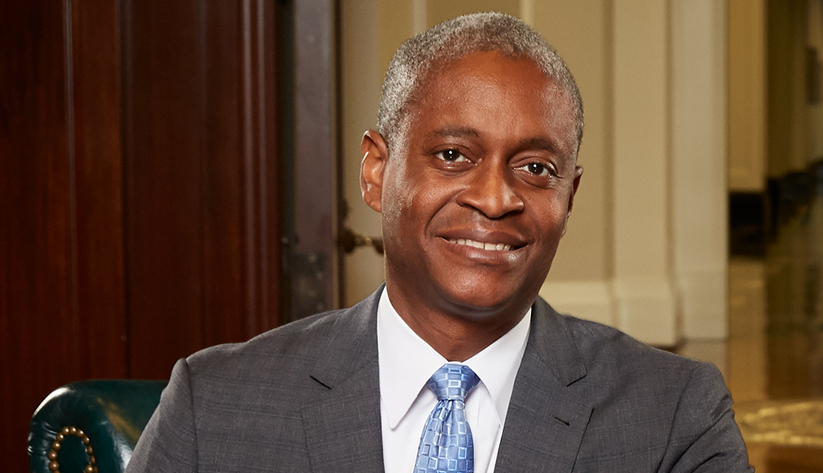
Federal Reserve Bank of Atlanta president and chief executive officer Raphael Bostic has been selected as a member of the National Academy of Social Insurance, an organization dedicated to increasing public understanding of how social insurance contributes to economic security.
Bostic is among 56 new academy members, who belong to leading universities, philanthropic foundations, research centers, and government agencies. Social insurance encompasses systems—such as unemployment insurance, Social Security, and Medicare—that help workers and their families pool risks to avoid loss of income and health care because of retirement, death, disability, or unemployment.
“I am honored and humbled to be included among such accomplished experts, from economists to legal and health care professionals,” Bostic said. “The work of the Academy is critical in advancing ideas to tackle profound challenges facing our nation as we look to rebuild a more inclusive and equitable economy in the wake of a pandemic whose health and economic effects have hit already-vulnerable populations especially hard.”
Academy members represent fields including program administration, policymaking, research, education, and advocacy. As president of a regional Federal Reserve Bank, Bostic helps to set the nation’s monetary policy as a member of the Fed’s Federal Open Market Committee. He also guides all of the Atlanta Fed’s work, including a multifaceted program aimed at enhancing economic mobility and resilience, particularly in low- and moderate-income and minority communities.
“It is my privilege to welcome this newest cohort to the Academy. They bring an inspiring range of perspectives to our work,” said William Arnone, the Academy’s chief executive officer. “It is essential to include various types of expertise and disciplines when it comes to the complex challenges we face—from the impacts of COVID-19 to systemic racism in our society and economy.”
New Academy members are nominated by current members in recognition of their professional contributions in one or more areas of social insurance. Members contribute to the Academy’s research, education, and leadership development initiatives by volunteering their time on study panels, task forces, and committees at conferences, on webinars, and in other Academy programs.




